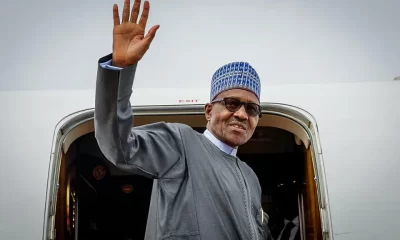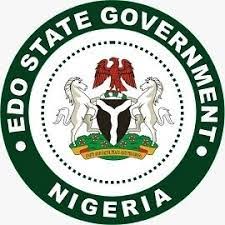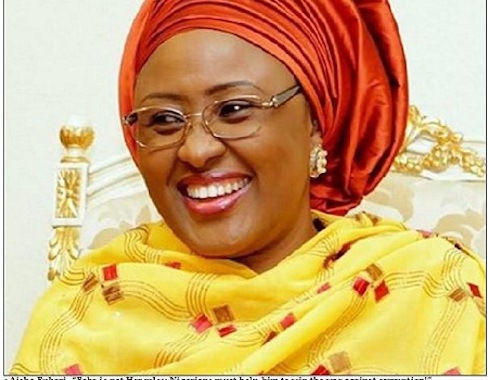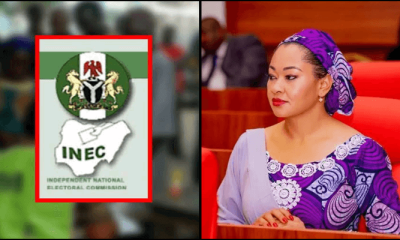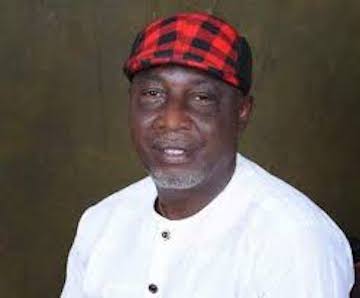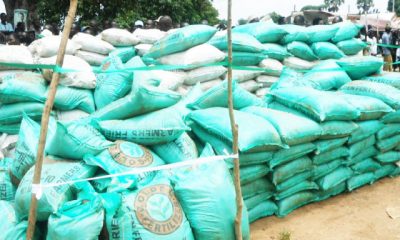COVER
Fuel Pump Price, Saudi Arabia and Grubby Arguments
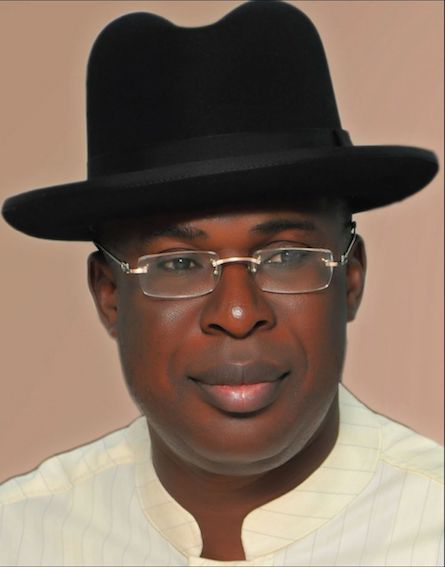
By Jerome-Mario Utomi
While waiting for the independence anniversary broadcast by President Muhammadu Buhari, on Thursday morning October 1, 2020, I stumbled on a statement by Sheikh Mohammed Bin Rashid Al Maktoum, Vice President and Prime Minister of the United Arab Emirate and Ruler of Dubai, where he stated thus:
God blessed UAE with a leadership of achievers, not egotists.
“Our leaders walk down the street without armoured cars and a large entourage of cars and motorcycles because they are not afraid of their people – they are one with them.
They feel and understand the pulse of the man in the street. With such a close and deep relationship between the leadership and the people, any decision taken by the former will be in the interest of the latter.This is the basis of a true vision – it is in the interest of the people”. To be sure, I listened afterwards with real curiosity to Mr. President’s broadcast while reflecting on the above.
Placing Al Maktoum words beside the content of Mr President’s broadcast enables one to understand more fully the essential ingredients of leadership foresights and objective.
At the end, not only did the analysis assisted me in understanding their priorities, but further clarified the age-long belief that the interest subjects take in their leader does not lie in the leader’s physical and intellectual abilities, but rather in what he can add to their lots in life’. Now, let’s be clear about what happened.
President Buhari during the broadcast, among other things, declared, in the circumstances, a responsible government must face realities and take tough decisions. Petroleum prices in Nigeria are to be adjusted. We sell now at N161 per litre.
A comparison with our neighbours will illustrate the point. Chad, which is an oil producing country, charges N362 per litre; Niger, also an oil producing country, sells a litre at N346. In Ghana, another oil producing country, petroleum pump price is N326 per litre.
Further afield, Egypt charges N211 per litre. Saudi Arabia charges N168 per litre. It makes no sense for oil to be cheaper in Nigeria than in Saudi Arabia. Clearly, Buhari’s arguments are well understood but not without difficulties.
And it will be naïve to proceed without spot incongruities while underlining his (Buhari) created ‘realities and the actual realities confronting the nation’.
To add context to the discourse, there is absolutely nothing wrong with comparing, admiring/copying other people/nation’s progress. Afterall, Tam-David West encouraged humanity to appreciate and admire the success of those who have really succeeded. And examples abound. First and very key, it is documented that before World War 11, Japan copied its corporate system from the West.
There were capitalists and labourers, haves and haves not. The big capitalists came into being in the late 19th century as a direct result of the Meiji government’s determination to catch up with the strong Western nations. Copying is by no means limited to Japan. When China discovered its potential to become a modern economy, it copied other nations by joining the World Trade Organisation, WTO.
Today, China has experienced a period of economic growth, the likes of which the world had never seen before. Its model blazes a new trail for other developing countries to copy and achieve modernisation as well as offers a new option for other countries which want to speed up their development. But there is a very big distinction to make.
In the present circumstance, there is a reason for concern that Mr. President’s recent comparison and inconsiderate declaration that it makes no sense for oil to be cheaper in Nigeria than in Saudi Arabia, suggests that what the nation is experiencing is no longer the first half of a reoccuring cycle but rather the beginning of something new.
And if we fail to change this mindset, chances are that we may as a nation continue in this thought-system that allows poverty, powerlessness and economic stagnation to thrive. It rings apprehension that the nation will continue to face new challenges.
Indeed, when one critically examines Mr. President ‘comparative analysis’, which for yet to be identified reason(s) was silent on the steps Saudi leadership is taking to reduce cost of governance and improve the life chances of citizens, it again amplifies the claim by Nigerians that if our founders could see the current state of their generation’s handiwork and access the quality of the present administration, they would be amazed at what leadership has become in the country.
At this point, it is important to ask: what suddenly informed the choice of Saudi Arabia as benchmark for determining petrol pump price in Nigeria as against market forces earlier claimed by the Federal Government?
Has President Buhari forgotten that unlike Nigeria, small scale businesses in Saudi Arabia are not petrol-dependent for their daily operation and the masses not preoccupied with buying of fuels for their cars/vehicles as Saudi Arabia is blessed with stable electricity and efficient transportation network?
At the moment, this is what this piece is proposing. If we must copy, let the Federal Government of Nigeria first copy the fact that Saudi Arabia, going by reports is dotted with the following refineries (government and private), all producing in various installed capacities and replicate same here at home: Riyadh Refinery 120,000 bbl/d (19,000 m3/d); Rabigh Refinery, 400,000 bbl/d (64,000 m3/d); Jeddah Refinery, 100,000 bbl/d (16,000 m3/d); Ras Tanura Refinery 550,000 bbl/d (87,000 m3/d); Yanbu’ Refinery, 225,000 bbl/d (35,800 m3/d); Yanbu’ Refinery (SAMREF) (Saudi Aramco/Exxon Mobil), 400,000 bbl/d (64,000 m3/d); Jubail Refinery (SATORP) (Saudi Aramco/Total), 400,000 bbl/d (64,000 m3/d); YASREF Refinery (Yanbu, KSA) (Saudi Aramco/Sinopec), 400,000 bbl/d (64,000 m3/d); Jazan Refinery (Saudi Aramco, opens 2016), 400,000 bbl/d (64,000 m3/d) and Jubail Refinery (SASREF) (Saudi Aramco/Shell), 305,000 bbl/d (48,500 m3/d). Again, as a country that had in the past met with challenges Nigeria still battles with, let Mr. President begin by asking Saudi Arabia how they are able to get the International Oil Companies, IOCs, to build refineries in the country.
And find out how their governments’ refineries function seamlessly, producing in their installed capacities unlike ours that gulp billions of Naira without result.
Most importantly, as part of the 60th Independence gift to Nigerians, the Federal Government urgently needs to understand why leaders in UAE can walk down the street without being afraid of their people instead of moving in armoured cars and large convoys of cars and motorcycles as is the case in Nigeria. This is the crux of this piece.
Utomi, is a Lagos-based media consultant, could be reached on jeromeutomi@yahoo.com
COVER
FG, States, LGCs Share N1.818trn June Revenue
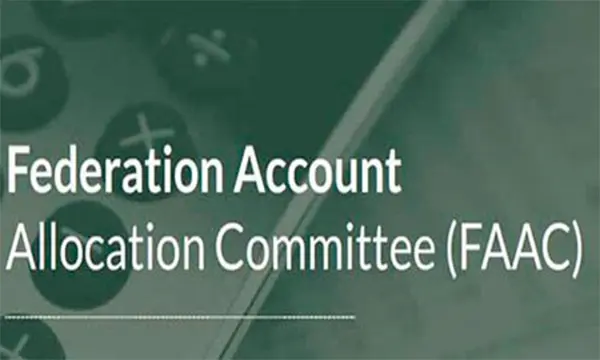
By Tony Obiechina Abuja
A total sum of N1.818 trillion, being June 2025 Federation Account Revenue, has been shared to the Federal Government, States and the Local Government Councils.The revenue was shared at the July 2025 Federation Account Allocation Committee (FAAC) meeting held in Abuja, in a statement by Bawa Mokwa Director of Press and Public relations in the Office of the Account General of the AGF during the weekend.
The N1. 818 trillion total distributable revenue comprised distributable statutory revenue of N1.018 trillion, distributable Value Added Tax (VAT) revenue of N631.507 billion, Electronic Money Transfer Levy (EMTL) revenue of N29.165 billion, Exchange Difference revenue of N38.849 billion and N100 billion Augmentation from Non-Mineral revenue.A communiqué issued by the Federation Account Allocation Committee (FAAC) indicated that total gross revenue of N4.232 trillion was available in the month of June 2025. Total deduction for cost of collection was N162.786 billion while total transfers, interventions, refunds and savings was N2.251 trillion.According to the communiqué, gross statutory revenue of N3.485 trillion was received for the month of June 2025. This was higher than the sum of N2.094 trillion received in the month of May 2025 by N1.390 trillion.Gross revenue of N678.165 billion was available from the Value Added Tax (VAT) in June 2025. This was lower than the N742.820 billion available in the month of May 2025 by N64.655 billion. The communiqué stated that from the N1.818 trillion total distributable revenue, the Federal Government received total sum of N645.383 billion and the State Governments received total sum of N607.417 billion.The Local government Council received N444.853 billion, while the sum of N120.759 billion (13% of mineral revenue) was shared to the benefiting State as derivation revenue.On the N1.018 trllion distributable statutory revenue, the communiqué stated that the Federal Government received N474.455 billion and the State Governments received N240.650 billion.The Local Government Councils received N185.531 billion and the sum of N118.256 billion (13% of mineral revenue) was shared to the benefiting States as derivation revenue.From the N631.507 billion distributable Value Added Tax (VAT) revenue, the Federal Government received N94.726 billion, the State Governments received N315.754 billion and the Local Government Councils received N221.027 billion.A total sum of N4.375 billion was received by the Federal Government from the N29.165 billion Electronic Money Transfer Levy (EMTL). The State Governments received N14.582 billion and the Local Government Councils received N10.208 billion.From the N38.849 billion Exchange Difference revenue, the communiqué stated that the Federal Government received N19.147 billion and the State Governments received N9.712 billion.The Local Government Councils received N7.487 billion, while the sum of N2.503 billion (13% of mineral revenue) was shared to the benefiting States as derivation revenue.The communique stated that the Federal Government received a total sum of N52.680 billion, the State Governments received N26,720 billion and the Local Government Councils received N20.600 billion from the N100 billion Augmentation.In June 2025, Companies Income Tax (CIT), Petroleum Profit Tax(PPT), Electronic Money Transfer Levy(EMTL) increased significantly while Oil and Gas Royalty, Value Added Tax( VAT), Import Duty, Excise Duty and CET Levies decreased considerably.COVER
Senate, Natasha Thread Words over Resumption as Court Ends Suspension

By Eze Okechukwu, Abuja
The Senate has warned suspended Kogi lawmaker, Senator Natasha Akpoti-Uduaghan to desist from forcefully resuming her legislative duties on Tuesday until the expiration of her suspension.Chairman of the Senate Committee on Media and Public Affairs, Senator Yemi Adaramodu gave the warning in a statement issued on Sunday.
While insisting that no valid court order mandates her immediate recall, Adaramodu emphasised that the Senate remains committed to due process and the rule of law. He said, “The Senate of the Federal Republic of Nigeria wishes to reaffirm, for the third time, that there is no subsisting court order mandating the Senate to recall Senator Natasha Akpoti-Uduaghan before the expiration of her suspension.”The clarification followed media reports quoting the embattled lawmaker as saying she would return to the Senate on Tuesday, allegedly based on a judgment by Justice Binta Nyako of the Federal High Court in Abuja.However, Adaramodu said the Senate had previously issued two public statements after the court ruling and the release of the Certified True Copy of the Enrolled Order, making it clear that no positive or mandatory directive was issued against the Senate regarding her recall.“Rather, the Honourable Court gave a non-binding advisory urging the Senate to consider amending its Standing Orders and reviewing the suspension, which it opined might be excessive.“The Court, however, explicitly held that the Senate did not breach any law or constitutional provision in imposing the disciplinary measure based on the Senator’s misconduct during plenary,” he said.The Senate further noted that the same court found Akpoti-Uduaghan guilty of contempt and imposed penalties, including a N5m fine payable to the Federal Government and a mandatory apology in two national newspapers and on her Facebook page, a directive that has reportedly not been complied with.“It is therefore surprising and legally untenable that Senator Akpoti-Uduaghan, while on appeal and having filed a motion for stay against the valid and binding orders made against her, is attempting to act upon an imaginary order of recall that does not exist,” the Senate spokesman added.He warned that any move by the suspended lawmaker to “storm the Senate next Tuesday under a false pretext” would be premature, disruptive, and a breach of legislative order.“The Senate will, at the appropriate time, consider the advisory opinion of the court on both amending the Standing Orders of the Senate, her recall, and communicate the same thereof to Senator Akpoti-Uduaghan.“Until then, she is respectfully advised to stay away from the Senate chambers and allow due process to run its full course,” the statement concluded.I’ll resume on Tuesday – Natasha Akpoti-Uduaghan Dares SenateSuspended Kogi Central Senator, Natasha Akpoti-Uduaghan, has vowed to resume her duties in the Senate on Tuesday.Akpoti-Uduaghan said her resumption was in line with a court decision.She disclosed this in a chat with journalists while in her constituency for a training programme on Saturday.The embattled lawmaker said the suspension limited her from performing her legislative duties.Natasha disclosed that she has officially informed the Senate in writing about her intentions to resume.She noted that despite the controversy surrounding the ruling of the Abuja Federal High Court, she will resume on Tuesday.“I have pretty much two months more before the six months expire. However, I have written to the Senate again telling them that I’m resuming on the 22nd, which is on Tuesday, by the special grace of God.“I will be there, because the court did make the decision on that,” she said.COVER
Dangote Refinery Targets 700,000bpd Capacity

By David Torough, Abuja
The Dangote Petroleum Refinery is undergoing a major capacity upgrade to increase its output from 650,000 to 700,000 barrels per day (bpd), according to Alhaji Aliko Dangote, President of the Dangote Group. The expansion, currently underway at the Lekki Free Zone in Lagos, is expected to be completed by the end of 2025.
Dangote, who spoke during a recent facility tour with stakeholders and journalists, explained that the upgrade is aimed at maximising the refinery’s potential, despite ongoing modifications slowing its ability to operate at full capacity this year. “As of July, our Residue Fluid Catalytic Cracking (RFCC) unit is running at 85 per cent capacity. Once modifications are complete, we expect to exceed the original design and hit 700,000bpd,” he said. The RFCC process converts heavy crude residue into valuable lighter fuels such as gasoline, diesel, and LPG.Dangote disclosed that the refinery sourced 19 million barrels of crude oil from the United States between June and July 2025 alone. “We bought 10 million barrels in July, which accounts for about 55 per cent of our current crude needs,” he said.He also reflected on the journey of building the $20 billion refinery, revealing it began after the late President Umaru Musa Yar’Adua halted his attempt to purchase Nigeria’s state-owned refineries in 2007.“Had I known the complexity and challenges involved, I might never have started. But we pushed through the setbacks, and today we’ve proved that nothing is impossible,” Dangote remarked.He further noted that most African nations are still dependent on imported refined fuels, with the exception of Algeria and Libya. “We needed to change that narrative. Only one refinery is currently operating in South Africa. So, we decided to take the risk,” he added.Dangote criticised what he described as “foreign sabotage through importation,” claiming some external forces use large volumes of imports to undermine domestic industries in Africa.In a related development, Nigeria has secured over $20 billion in new investment commitments from China to support key sectors of the economy, including agriculture, mining, steel, energy, and automotive manufacturing.Director General of the Nigeria-China Strategic Partnership (NCSP), Joseph Tegbe disclosed the breakthrough over the weekend, noting that the funding was the result of sustained bilateral engagements following the elevation of Nigeria-China ties to a Comprehensive Strategic Partnership.“These are real commitments, not just pledges,” Tegbe said. “We’re talking about tangible projects that will create jobs, boost local production, enhance food security, and make Nigeria a leading manufacturing hub in Africa.”Tegbe added that the NCSP is driving efforts to ensure the success of Forum on China-Africa Cooperation (FOCAC) projects in Nigeria, while also leveraging Chinese expertise and financing to reposition the country’s industrial base.The partnership also aims to open Asian markets to Nigerian-made goods, enhancing exports and creating value-added supply chains in line with President Bola Tinubu’s Renewed Hope Agenda.“We’re not only building bridges with investors; we’re delivering results that will transform Nigeria’s economy for generations to come,” Tegbe said.
